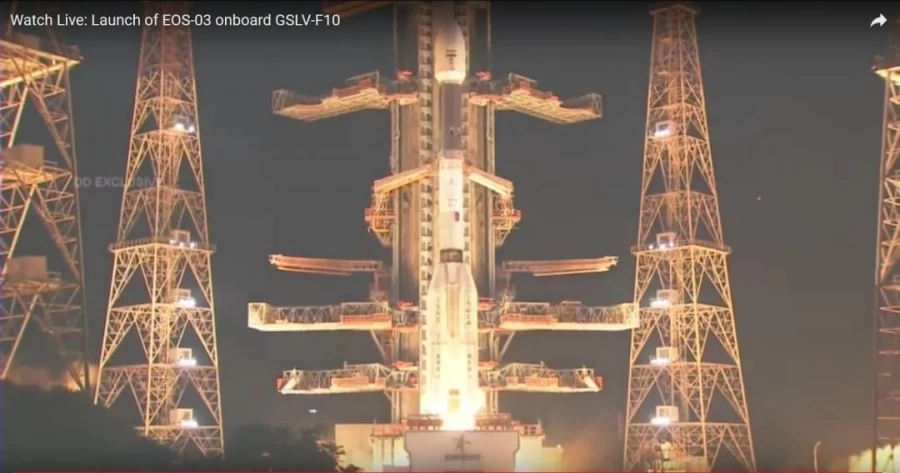New Delhi: After a break of four months, the launch of the earth observation satellite EOS-03 aboard Indian Space Research Organisation ’s heavy launch vehicle GSLV was unsuccessful, with the third stage of the engine not igniting.
“GSLV-F10 launch took place today at 0543 Hrs IST as scheduled. Performance of first and second stages was normal. However, Cryogenic Upper Stage ignition did not happen due to technical anomaly. The mission couldn’t be accomplished as intended,” said a statement from the Indian Space Research Organisation (Isro).
Silence fell at the mission control room just before the seventh minute of the flight of the launch vehicle and the scientists started analysing the numbers. “The outcome of the mission will be announced by Isro soon. Right now in the mission control, senior scientists are in discussion regarding the performance of the flight,” said an announcement a couple of minutes later. The space agency finally said that the mission couldn’t be accomplished “fully.”
#WATCH | Indian Space Research Organisation's GSLV-F10 lifts off successfully from Satish Dhawan Space Centre, Sriharikota (Source: DD) pic.twitter.com/2OV8iA06Xf
— ANI (@ANI) August 12, 2021
The space agency’s Geosynchronous Launch Vehicle hasn’t been as successful as its workhorse PSLV – three of the fourteen missions to date failed to reach orbit. In comparison, two of the 53 flights of PSLV were unsuccessful – the first one in 1993 when the rocket was in its development stage and the second one PSLV C-39 in 2017 when the heat shield protecting the satellite did not open.
The vehicle uses liquid fuel strap-on motors, solid fuel first stage, a liquid fuel second stage, and a cryogenic (liquefied gasses stored at extremely low temperatures) third stage. This was the eighth time Isro was flying the indigenous cryogenic third stage in the vehicle.
The GSLV Mk III vehicle, referred to as the Bahubali of the Indian space agency, carried the Chandrayaan-2 on its first operational flight and will be carrying astronauts to space under the Gaganyaan Mission. All of the four flights, including one sub-orbital flight, of the vehicle have been successful.
This was the second mission for Isro in 2020, with the previous PSLV undertaking a commercial mission to launch Brazil’s earth observation satellite Amazonia-1 as the primary payload in February. All missions were halted after that due to the second wave of the pandemic.
Isro has planned three more launches this year, including the maiden flights of its new vehicle small satellite launch vehicle (SSLV).


